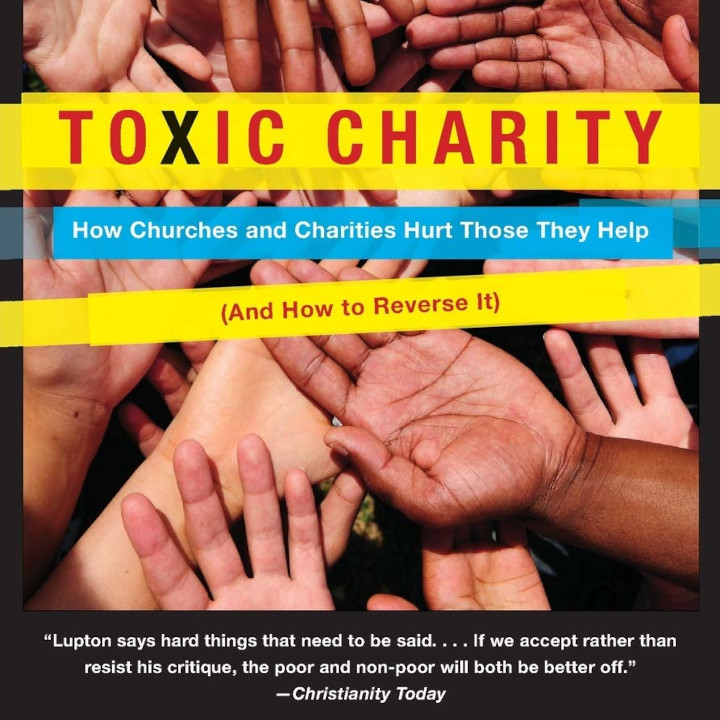Video cover image by Valentine L. CC0 Public Domain
- We usually read this parable as a story of forgiveness, but that is not it’s primary meaning.
- It is about how someone covered in shame can have it taken away by being honored.
- The reason that this is so important is that we very often come to God, feeling shame at our constant failure.
- This story is to teach us how he wants to take away this shame with a gift of honor, and to receive us with joy.
- If you have trouble viewing this video, you can try watching it directly on Vimeo
- Play Audio
Sermon Slides - A Different Way of Reading the Parable of the Lost Son
- This a book I read recently, that blessing me:
For Shame

Image source: Elshof
For Shame
Once you know what to look for, the categories of shame and honor are all throughout the Bible. This should not surprise us, given that the human authors of the Scriptures were, without exception, writing from cultural perspectives heavily influenced by shame and honor dynamics. My favorite biblical picture of the shame and honor dynamic comes to us with the story that Jesus tells us about the so-called prodigal son.
Gregg A. Ten Elshof, Zondervan 2021 p.122
- He argues that in our individualistic culture, we misunderstand shame and how to heal it
- The opposite of shame is honor
- By honoring someone, we undo their shame
A Different Way of Reading the Parable of the Lost Son
- The Answer to Shame and the Lost Son
- Shame in my Relationship with God
- Our Response to God’s Honor
1. The Answer to Shame and the Lost Son
- We usually read this story as being about forgiveness
- The son has sinned grievously, but the father forgives him freely.
- Yet the story does not even mention forgiveness, and the Father never says “I forgive you”
Luke 15:11–32 Parable of the Lost Son
- And he said, “There was a man who had two sons.
- And the younger of them said to his father, ‘Father, give me the share of property that is coming to me.’ And he divided his property between them.
- Not many days later, the younger son gathered all he had and took a journey into a far country, and there he squandered his property in reckless living.
- And when he had spent everything, a severe famine arose in that country, and he began to be in need.
- So he went and hired himself out to one of the citizens of that country, who sent him into his fields to feed pigs.
- And he was longing to be fed with the pods that the pigs ate, and no one gave him anything.
- “But when he came to himself, he said, ‘How many of my father’s hired servants have more than enough bread, but I perish here with hunger!
- I will arise and go to my father, and I will say to him, “Father, I have sinned against heaven and before you.
- I am no longer worthy to be called your son. Treat me as one of your hired servants.”’
- And he arose and came to his father. But while he was still a long way off, his father saw him and felt compassion, and ran and embraced him and kissed him.
- And the son said to him, ‘Father, I have sinned against heaven and before you. I am no longer worthy to be called your son.’
- But the father said to his servants, ‘Bring quickly the best robe, and put it on him, and put a ring on his hand, and shoes on his feet.
- And bring the fattened calf and kill it, and let us eat and celebrate.
- For this my son was dead, and is alive again; he was lost, and is found.’ And they began to celebrate.
- The key place I want go to today is God taking away my shame.
2. Shame in my Relationship with God
- So why was this way of reading the parable such a blessing to me?
God’s honor taking away my shame
- We often feel shame when we come to God, because we are aware of our failings
- This parable is to teach you about God’s attitude to you!
- Note that the father never told the son he was wrong to feel shame
- He just lifted him out of it.
- He has literally given you some of his own honor!
- “We are together”
Luke 8:43–48
- And there was a woman who had had a discharge of blood for twelve years, and though she had spent all her living on physicians, she could not be healed by anyone.
- She came up behind him and touched the fringe of his garment, and immediately her discharge of blood ceased.
- And Jesus said, “Who was it that touched me?” When all denied it, Peter said, “Master, the crowds surround you and are pressing in on you!”
- But Jesus said, “Someone touched me, for I perceive that power has gone out from me.”
- And when the woman saw that she was not hidden, she came trembling, and falling down before him declared in the presence of all the people why she had touched him, and how she had been immediately healed.
- And he said to her, “Daughter, your faith has made you well; go in peace.”
- He calls her daughter—A high status person identifies with her, giving her some of his status
“We are together!”
transfer of honour
- Another example would be eating with tax collectors and sinners, this very same chapter in Luke
Luke 15
- Now all the tax collectors and sinners were coming to hear him.
- But the Pharisees and the experts in the law were complaining, “This man welcomes sinners and eats with them.”
- It cost Jesus some of his honour to do this
- The older brother in the story represents them:
Luke 15:11–32 cont’d
- “Now his older son was in the field, and as he came and drew near to the house, he heard music and dancing.
- And he called one of the servants and asked what these things meant.
- And he said to him, ‘Your brother has come, and your father has killed the fattened calf, because he has received him back safe and sound.’
- But he was angry and refused to go in.
- His father came out and entreated him,
- but he answered his father, ‘Look, these many years I have served you, and I never disobeyed your command, yet you never gave me a young goat, that I might celebrate with my friends.
- But when this son of yours came, who has devoured your property with prostitutes, you killed the fattened calf for him!’
- And he said to him, ‘Son, you are always with me, and all that is mine is yours.
- It was fitting to celebrate and be glad, for this your brother was dead, and is alive; he was lost, and is found.’”.
Heb 12 – He takes our shame
- …looking to Jesus, the founder and perfecter of our faith, who for the joy that was set before him endured the cross, despising the shame, and is seated at the right hand of the throne of God.
3. Our Response to God’s Honor
1 Peter 4
Whose honoring do you care about?
- Yet if anyone suffers as a Christian, let him not be ashamed, but let him glorify God in that name.
Our Response to God’s Honor
- Not caring about the shame the world can make us feel for following Jesus
- Copying God by honoring the shamed in our society
- Rest in the honor that God is giving you right now
A Different Way of Reading the Parable of the Lost Son
- The Answer to Shame and the Lost Son
- Shame in my Relationship with God
- Our Response to God’s Honor
- Not caring about the shame the world can make us feel for following Jesus
- Copying God by honoring the shamed in our society
- Rest in the honor that God is giving you right now
Isaiah 61
- I will greatly rejoice in the LORD; my soul shall exult in my God, for he has clothed me with the garments of salvation; he has covered me with the robe of righteousness, as a bridegroom decks himself like a priest with a beautiful headdress, and as a bride adorns herself with her jewels.
- Luke 15:20 But while he was still a long way off, his father saw him and felt compassion, and ran and embraced him and kissed him.
“Bring quickly the best robe, and put it on him, and put a ring on his hand, and shoes on his feet.”
- Focus on how God wants to honor you right now!
- Imagine him doing this with you?
Updated on 2022-10-20 by Andrew Fountain



